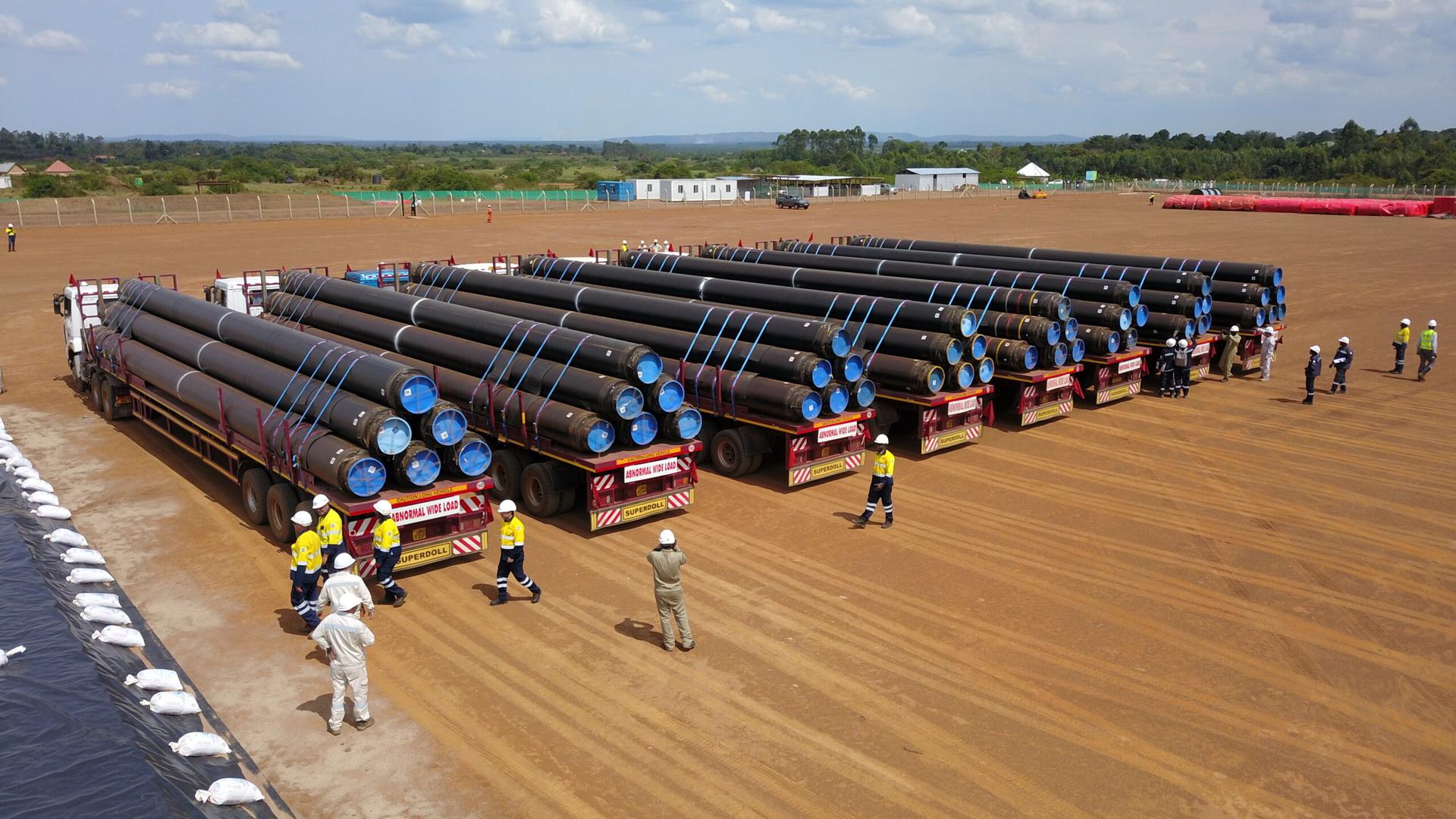YAOUNDÉ, Cameroon – A leading Catholic environmentalist has warned that Africa faces an unprecedented threat from a proposed 900-mile crude oil pipeline designed to transport crude oil from Uganda’s Lake Albert oilfields to the port of Tanga in Tanzania, a project which has already been denounced both by the Vatican and the African bishops.
If completed, the proposed East Africa Crude Oil Pipeline (EACOP) would be the longest heated crude oil pipeline in the world. French oil giant Total and the China National Offshore Oil Corporation are behind the undertaking.
Authorities in both countries view the pipeline as a potential game-changer, arguing that it would generate income in way of taxes for Uganda and Tanzania-the two countries through which the pipeline passes.
But Flavian Wanzala, a young Catholic environmentalist in Kenya, has lashed out at the potential environmental implications of the project, particularly for Lake Victoria. A third of the pipeline’s length will pass through or near the lake. Africa’s largest lake is also the chief reservoir of the Nile. Spanning some 26,828 square miles, the freshwater lake lies mainly in Tanzania and Uganda but also borders Kenya.
Speaking Oct. 1 on the sidelines of a 2025 Season of Creation event organized by the Pious Society of the Daughters of St. Paul in Kenya, Wanzala warned that a single oil leak could devastate the lake’s ecosystem, potentially disrupting the lives of some 40 million people who depend on it for their livelihoods.
She said the economic benefits being touted by the authorities amounts to an unacceptable gamble, with the primary source of water for a region frequently afflicted by drought.
“Part of the pipeline passes through Lake Victoria, about a third of it. Lake Victoria feeds almost everyone in Africa in one way or another. It supports the livelihoods of 40 million people in Africa and directly employs about 40,000 in Kenya,” Wanzala said.
“So in case of a leakage along that pipeline, we are going to lose everything as Kenya, as Africa, as a continent.”
She also complained that the construction of the pipeline will disturb nearly 2,000 square kilometers of protected wildlife habitats. These include the Murchison Falls National Park, the Taala Forest Reserve, the Bugoma Forest, and the Biharamulo Game Reserve. These are critical to the preservation of iconic wildlife species such as the African elephant and the eastern chimpanzee.
“On top of that, it will produce over 600 million tons of carbon per year. I feel this project is not good for us as Africans,” the youth leader said.
Her apprehension has been shared by several other Catholic entities.
In March 2023, the Vatican Dicastery for Promoting Integral Human Development urged the governments of Uganda and Tanzania to be considerate “of our common home” and invest in environment-friendly projects that preserve the ecosystem.
The group said that “the Catholic Church stands with the people of Uganda and Tanzania in denouncing the EACOP project and asked the two governments to look into investing in projects that are in line with preserving and caring for our common home, the poor, and the economy.”
Members of the Symposium of Episcopal Conference of Africa and Madagascar (SECAM) called for a stop to the project, urging humanity to “exercise responsible stewardship over creation”.
“We are calling for an immediate stop of the East Africa Crude Oil Pipeline. If built, the proposed pipeline will displace communities, endanger wildlife, and make the climate emergency and biodiversity crisis devastatingly worse,” the bishops said.
And the “Laudato si’ Movement” argued that scientific evidence of the climate implications of such a project, as all fossil fuel projects, could be devastating.
“The scientific evidence is clear that nations must phase out fossil fuels to prevent catastrophic climate change. According to the United Nations Environment Programme, the world must achieve net-zero greenhouse gas emissions by 2050 to limit global warming to 1.5° C and to protect the planet’s ecosystems and biodiversity. EACOP is estimated to produce over 379 million tons of CO2, according to a study by Banktrack, and is incompatible with the Paris Agreement,” it said in a statement.
On the other hand, the Tanzania Episcopal Conference in April 2023 issued a statement extolling the merits of the pipeline. It drew parallels with the 1,063 miles Tazama Crude Oil Pipeline that was built in 1968 to transport crude oil from the port of Dar es Salaam to the Indeni Petroleum Refinery at Ndola, Zambia, close to the border with the Democratic Republic of Congo.
“EACOP will not be the first oil pipeline project to be executed in the country. Tazama has existed for the past 50 years, and we have never seen serious consequences or heard of any crisis,” said Archbishop Jude Thaddaeus Ruwa’ichi of the Archdiocese of Dar es Salaam.
“So, let’s raise our voices and speak positively about this project because we believe the government is observing all environmental procedures,” he said.
Wanzala doesn’t buy into such an argument, insisting that her opposition to the project isn’t just an environmental stance; it is also a moral responsibility as a Catholic youth.
“In Africa, we are among the people suffering the most from the consequences of climate change,” she said.
“Fossil fuels are extracted here, taken to Europe, and then sold back to us at higher prices,” she said. “It doesn’t make sense.”













